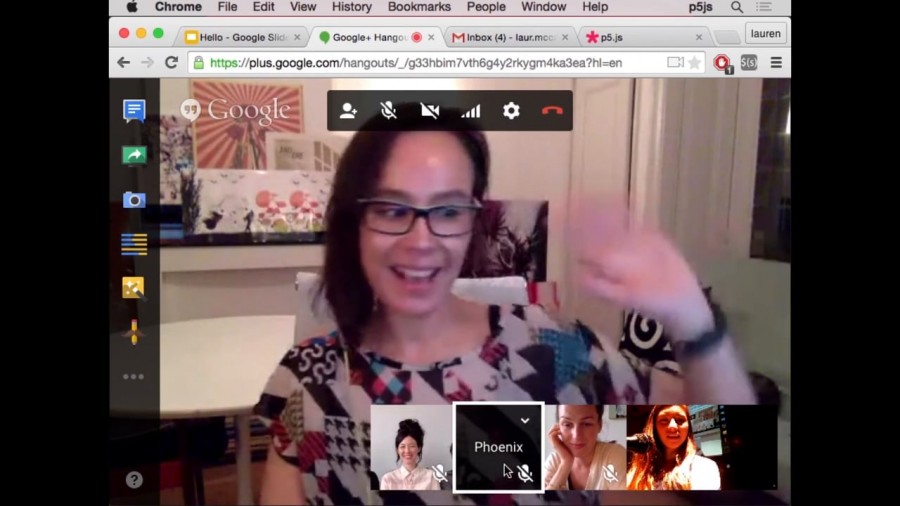Hello. I’m Phoenix Perry, and I want to say thank you to p5 and Processing for having me here. You’ve been huge to me, and I don’t say that often. I, much like Stephanie, started programming and working as a developer and found myself pushed out of the field. After four years of quitting programming, I came back, and it was Processing I started with in 2004, that brought me back into development. So thank you guys, and I want to point out now I’m doing nothing special here. I feel like anyone who’s at this conference could be on this stage. I just want to make sure that everyone understands that if you love what you do, people will eventually flock to you and it’ll all work out.
I’m going to tell you a little bit about an organization I run, The Code Liberation Foundation. We teach women to program games for free. We’ve taught over a thousand new woman to be programmers, between the ages of sixteen to sixty. We have a high school program, and we consider inclusivity as a mandate for building open-source communities. I’m going to show you a little bit about our organization.
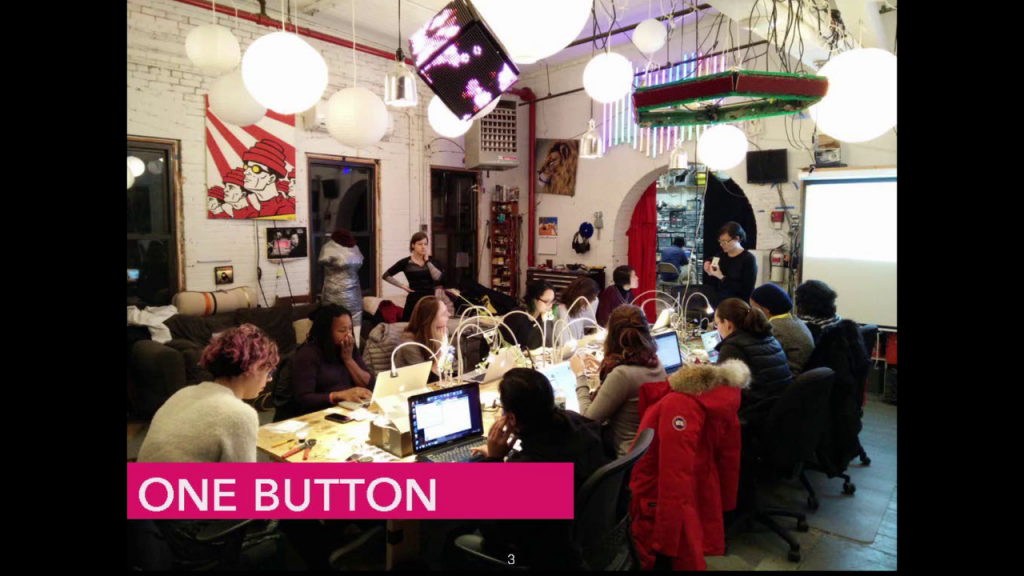
This is a class I ran this December [2014] at NYC Resistor, where we learned to make a one-button game. The class was sold out pretty instantly, and it was a really wonderful experience to teach hardware and game development.
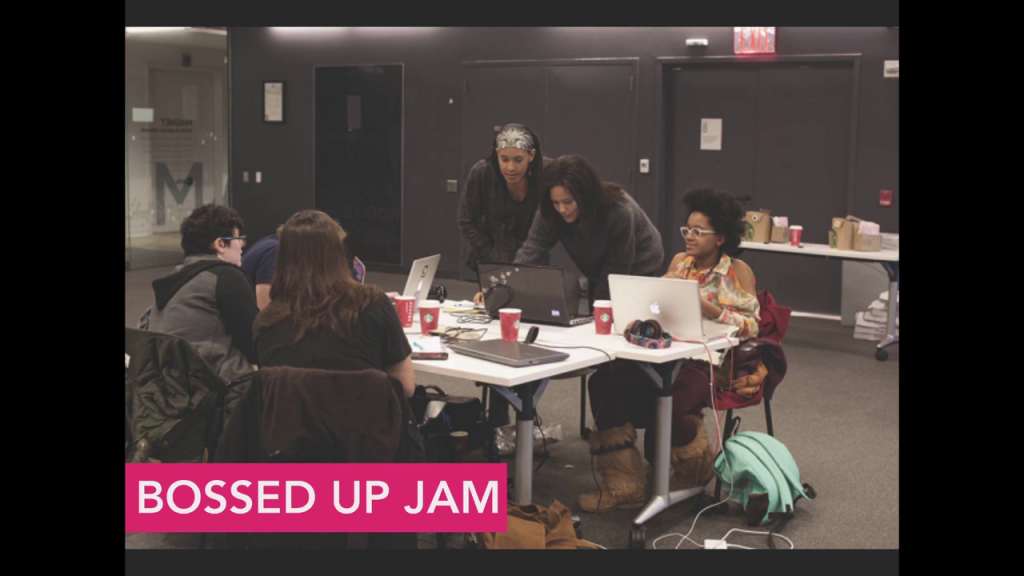
This is a game jam we ran called “Bossed Up,” and Bossed Up is an idea that women when very assertive and dominant are called a bitch, and men are bossing up, they’re manning up. Nicki Minaj has a pretty hilarious video and we decided to build this game jam on this theme of empowerment.
Our high school classes are great. They’ve been at NYU Poly, and they’ve helped us reach out into organizations and communities that maybe wouldn’t have been open to games previously.
We do a lot of Lady Jams; we do three or four a year. Those are organizations efforts where we have a three-day intensive education session in something like Processing or Unity or GameMaker, and then we run a game jam featured with an exhibition and press at the end.
We’ve worked with organizations like Black Girls Code, and our game development classes have been in everything from Twine, to Javascript, to Phaser, to openFrameworks.
Now I want to talk a little bit about engaging women in programming in three steps.
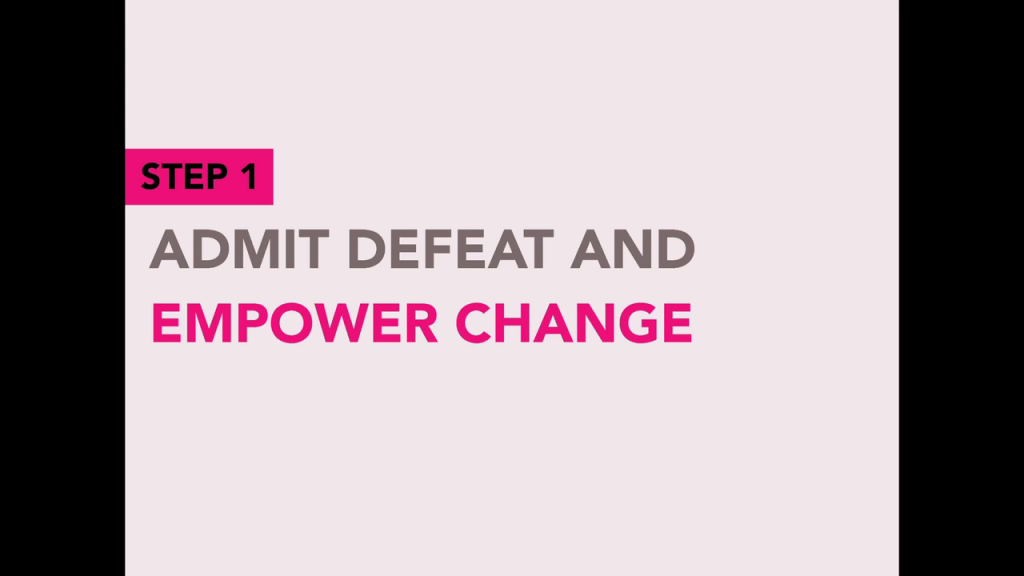
One is I think we need to really admit defeat, and that’s something that I think the open-source community is on the verge of being very interested in doing. The other thing is empowering change. Basically we need to admit (and I think that this is interesting; it was interesting for me to hear Lauren’s story), that women might come in with lesser skillsets, and they might be less willing to post out online. I think reaching out to those women and empowering them is huge. Personal contact to me is really crucial, and I’m really thankful that Casey took a risk on Lauren, because it’s paid off beautifully.
I think that all of us need to be willing to mentor, as well. Women majoring in Computer Science in US universities fell 79% between 2000 and 2011, and that’s no surprise to me given the climate in computer science classes at most universities.
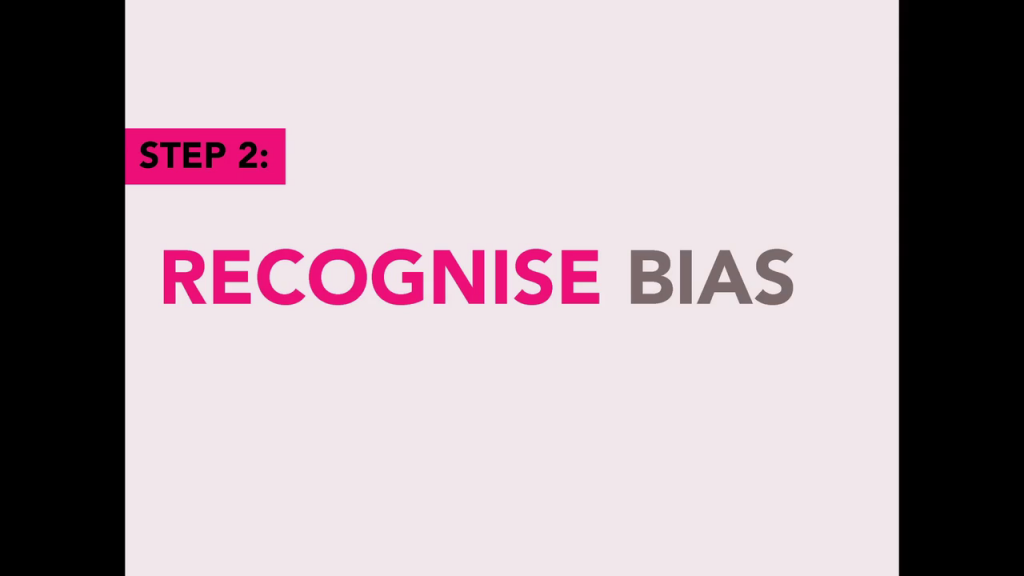
That leads me to step to where we really need to recognize an existing bias. Forums and open-source platforms often appear to be very hostile territories for women. We’re often criticized online about our gender and if we dare to post a video, men seem to want to comment about our appearance first, which is really uncomfortable. Bias comes in all forms, and the largest might be the ability for women to participate in these communities. I feel like reaching out and personally inviting them in is a really positive way forward.
Inclusion may not mean just rewarding the loudest voice or the largest contributor on Github. It might actually be around engaging people who have been biased against in social systems, and in the end I think they have far more to gain than the other folks.
I think that Computer Science courses really cater to male interests. What I mean by that is that I think that they often focus on how computers encode work. They’re very heavily male-dominated, and women often feel uncomfortable in solid male classes, and then tend to drop out and enroll in classes that are less gender-biased. Things like design, or literature, or other courses that don’t make them feel so threatened when they’re the only woman working in a lab at night.
I think that Processing has done a beautiful job of this, and I think that this is a really valid effort, and I think it’s why you see so many women in the creative coding community. I think if we can really reintroduce code as a way to create, we have a real shot of leveling off the gender gap.
I really believe that it’s have death of the brogrammer. What I mean by that is that there is no reason to reward this kind of behavior. Just because your code is more complicated and more difficult doesn’t make it any better. Often online communities can get really bro-ish and get really technical without being meaningful or really significantly contributing to the codebase in any way. That makes less confident developers feel incredibly out of place, and feel like the curve to stepping into contributing to open-source software is incredibly steep and intimidating, and that’s got to stop.
I think we need to recognize that a lot of men are beginning to recognize that as a result of the system around us, they’ve had more access and training and financial ability to contribute. And if a woman’s in the same room, there’s a good shot she’s overcome a lot more to be there, and her participation is costing her more. We can’t let overconfident men drive young women out.
I really believe in this idea of no coder left behind, and I celebrate and mentor newer users in our community. They often become heavyweights later on, and I think that if we want to see that ramp continue (This is something that I’m going to hope to contribute with with the openFrameworks community, and Processing is exceptional with) is having good documentation. I think it’s really important that if you’re in a position to offer speaking opportunities, to take a chance on someone who’s maybe not spoken before to represent your organization. I think these visible roles really empower these women, because they will encourage others by standing as role models.
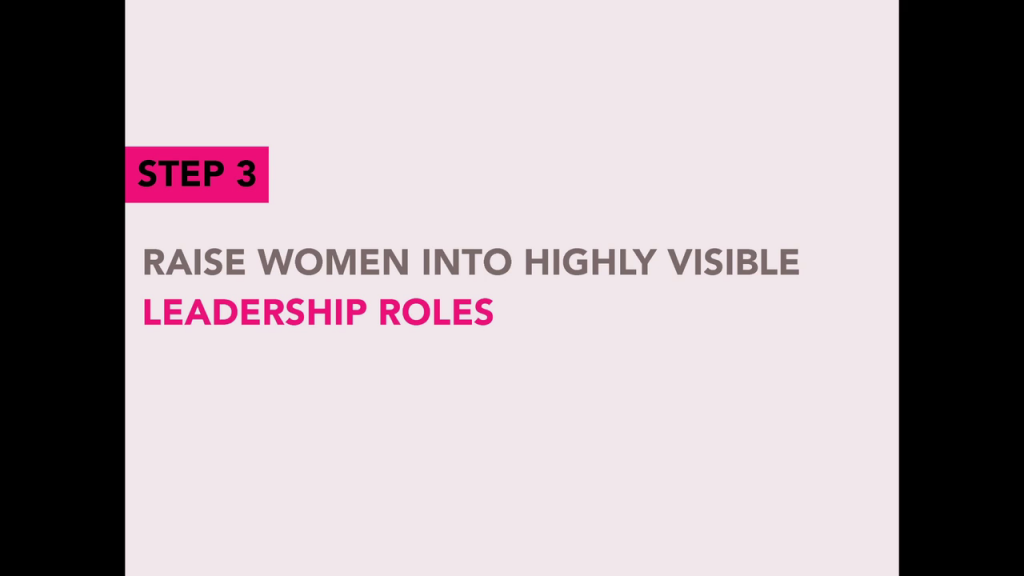
And I really believe that we have to raise women into highly visible leadership roles. You just have to toss women out front. There’s no other way to build the respect that we want. I think that if we can find young faces or new faces in our community, or women who are particularly representing different pieces of communities you want to see more of and give them a role, then it’s over. It goes forward from there.
I recently had Zach Lieberman give me a shout out at the Resonate festival and I almost fell over. I was like, “Holy Jesus Christ.” But it was such a huge thing for me, and it really encouraged me to continue working with openFrameworks.
This is one of the things that I think everyone in this room is going to bring up and talk about, but programming is a political act. I really believe we’re at the naissance of programming and code as it enters into our culture. The ideas that we create and bring into our culture now are going to be profoundly important to the future of humanity. The structure that they take will be the bedrock for the next hundred years from now. And for me, a minority of rich empowered white people crafting these narratives will lead to less-optimal hierarchic solutions, and I really believe that code can be open and ideas should benefit us all. I think you really see these differences when you look at the ideas that Radia Perlman created with tree structures, or that if you take a second and look at Centipede the video game, with its round ball controller and its colorful bright lights, you can get a sense that Dona Bailey brought something really different to video games than the joystick.
Thank you.
Further Reference
Overview page at the Studio for Creative Inquiry’s web site.
